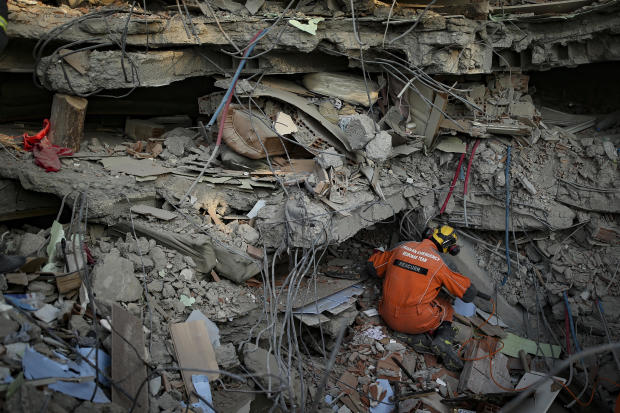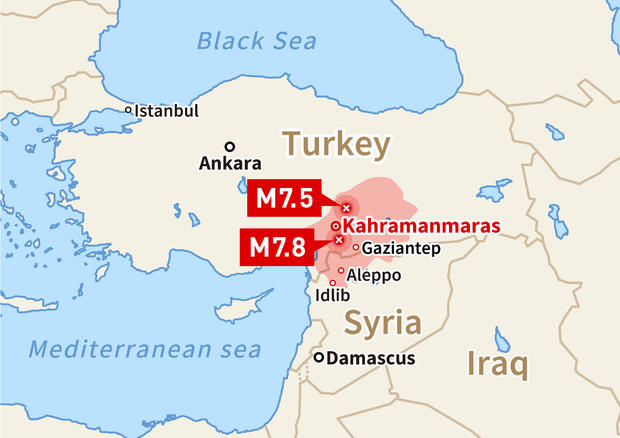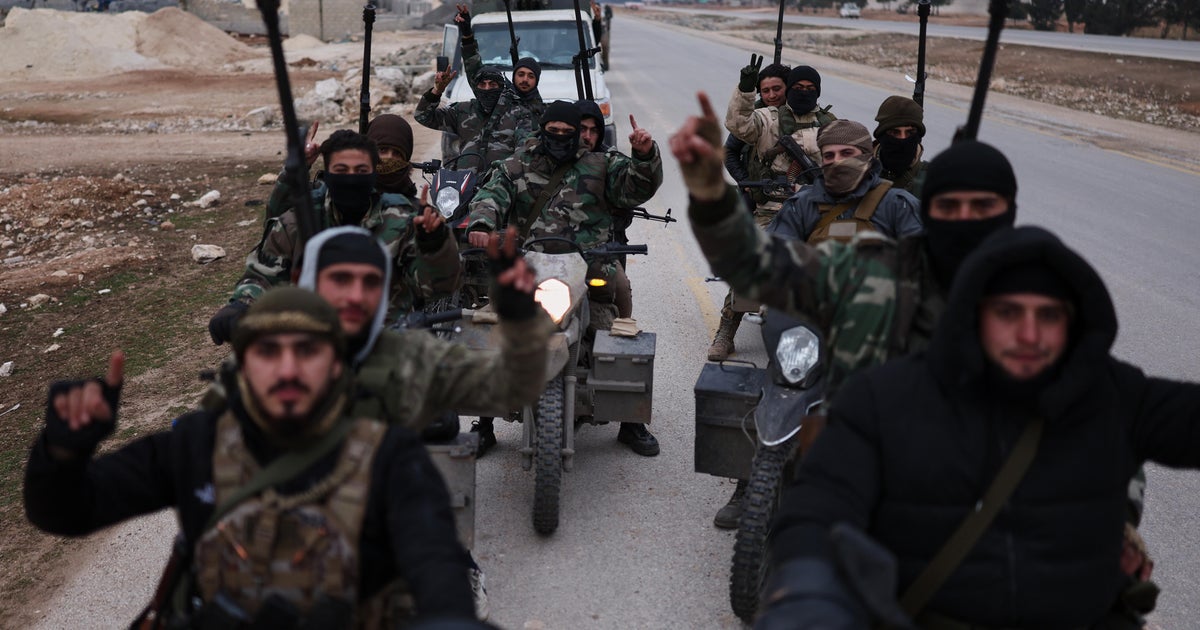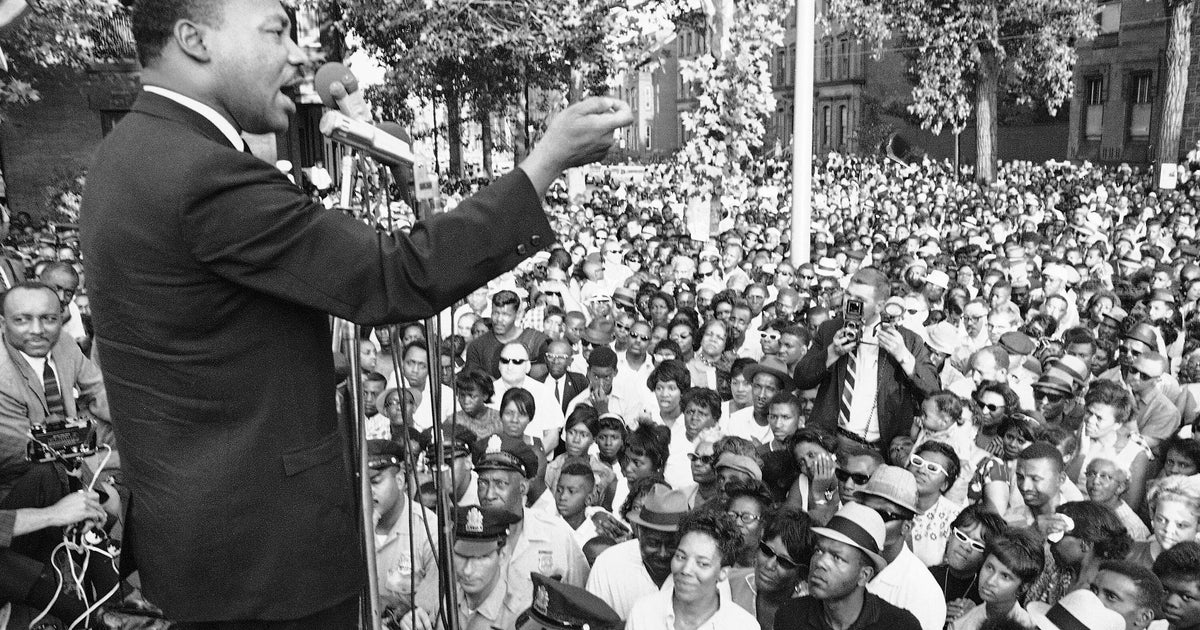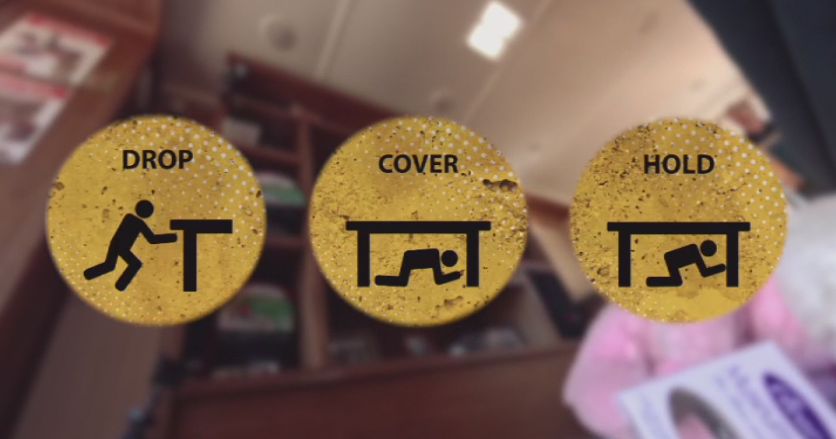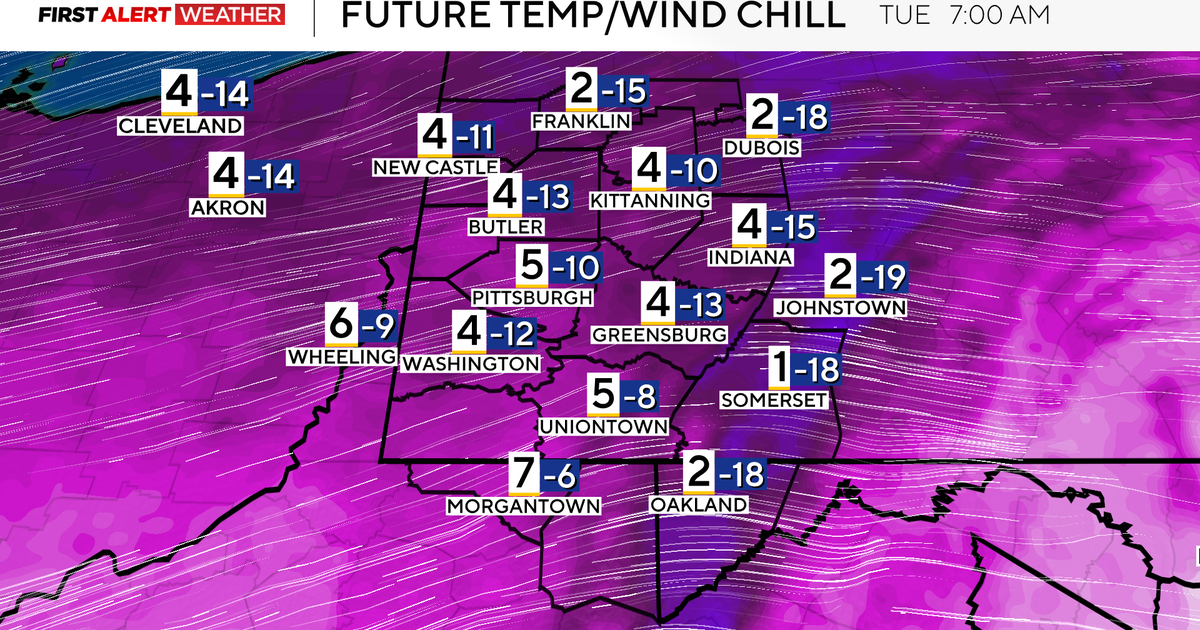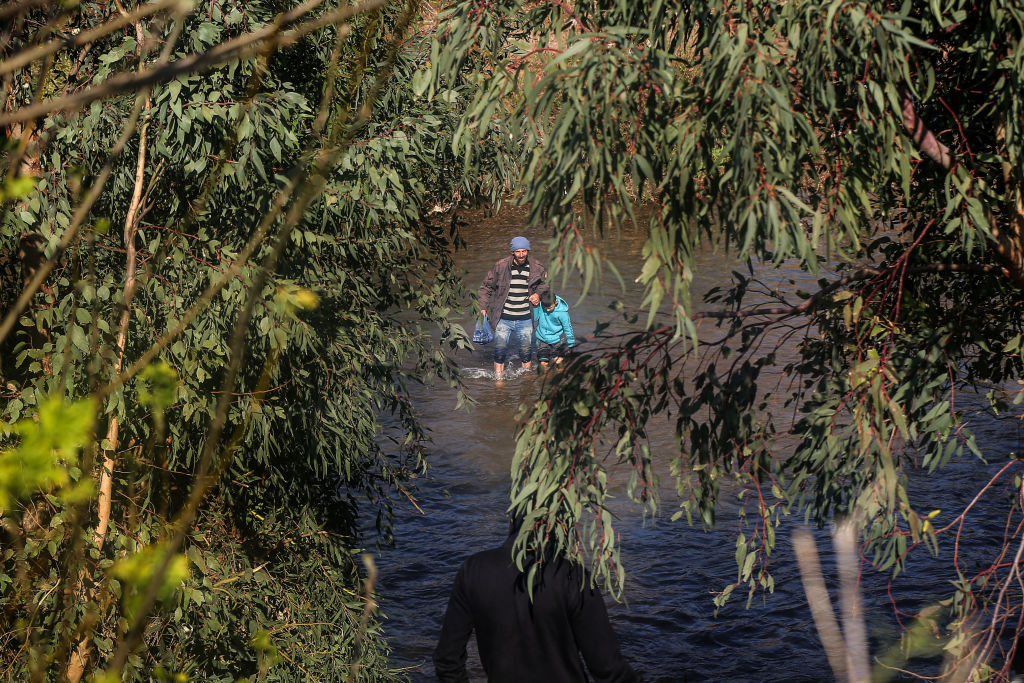Turkey and Syria earthquake rescue efforts wind down as survivors struggle to survive and death toll rises
Hatay, southern Turkey — At night, when the temperature plunges below freezing, survivors of the monstrous earthquakes in Turkey and Syria burn wood scavenged from their own destroyed homes to keep warm. Families that were well-off and comfortable just over a week ago are now living in donated tents set up in a local park.
Much of Antakya, in southeast Turkey, has been reduced to a place of misery and deep uncertainty. There, we met engineering student Abdul Rahman and his family. They were already refugees, forced to flee their hometown of Aleppo by the civil war in Syria.
Now, they have been left homeless once again.
"We will leave this city and start over again," said Rahman. "We'll be fine. We're used to a hard life."
Few in southern Turkey were prepared for the level of devastation delivered by the powerful earthquakes. Hundreds of makeshift camps have sprung up across the country. Aid is available, but conditions for the survivors get worse with every passing day. Trash has been piling up because there's no one to collect it.
The odd rescue story was still emerging Tuesday, eight days after the killer quakes struck. An 18-year-old man was pulled from the twisted steel and concrete of his razed building in southern Turkey hours after two brothers were saved from their toppled apartment building. At least two other people were reportedly rescued in southern Turkey on Tuesday.
Increasingly, however, in both Turkey and Syria, efforts were turning from rescue to recovery.
The Old City of Hatay, in southern Turkey, was once a thriving ancient quarter. It has been left unrecognizable and un-liveable.
The Turkish government has promised to rebuild all the damaged and destroyed buildings across the country within a year, but few believe that will happen. Survivors have other, more pressing concerns, like burying the dead.
The overall death toll pinned on the earthquakes — a massive 7.8-magnitude temblor that struck early on the morning of February 6 and a second, 7.5 quake about nine hours later — had climbed to more than 37,300 people Tuesday, with more than 31,000 dead in Turkey alone.
On Tuesday, residents of Hatay and other decimated towns and villages were focused on burying their loved ones and neighbors who didn't survive. Many were being placed in mass graves, hastily dug along the sides of highways or wherever else ground could be cleared.
Makeshift gravesites stretch as far as the eye can see, and crews were busy digging more.
The United Nations estimates the overall death toll could surpass 50,000 by the time recovery efforts have finished, but with the remains of so many people still buried under mountains of rubble, the true human cost of the disaster may never be clear.
Syria to open border to aid
Across the border in war-torn northern Syria, the misery has been compounded by slow-arriving international aid, but there was hope Tuesday morning that the pace might pick up with new routes into the country becoming available.
Martin Griffiths, the U.N.'s emergency relief coordinator, visited Aleppo on Monday and acknowledged that rescue operations were "coming to a close," with the focus turning to providing shelter and food for survivors and getting children back into schooling.
With rebel forces still in control of a significant swath of the country, only one border crossing from Turkey into Syria has been open for years. That's made it painstakingly slow for the U.N. and other agencies to get desperately-needed rescue and relief materials into the Syrian quake zone. Frustration and anger have been rising as people whose lives were already difficult have been left with nothing, in the freezing cold of winter, waiting over a week for help to arrive.
On Monday, Syrian President Bashar Assad agreed to open two more crossings into northern Syria from Turkey, offering hope that more help could soon reach quake victims in the region.
U.N. Secretary-General Antonio Guterres welcomed the decision by Assad, which he said would keep the crossings open for at least three months "to allow for the timely delivery of humanitarian aid."
"Delivering food, health, nutrition, protection, shelter, winter supplies and other life-saving supplies to all the millions of people affected is of the utmost urgency," Guterres said in a statement.

